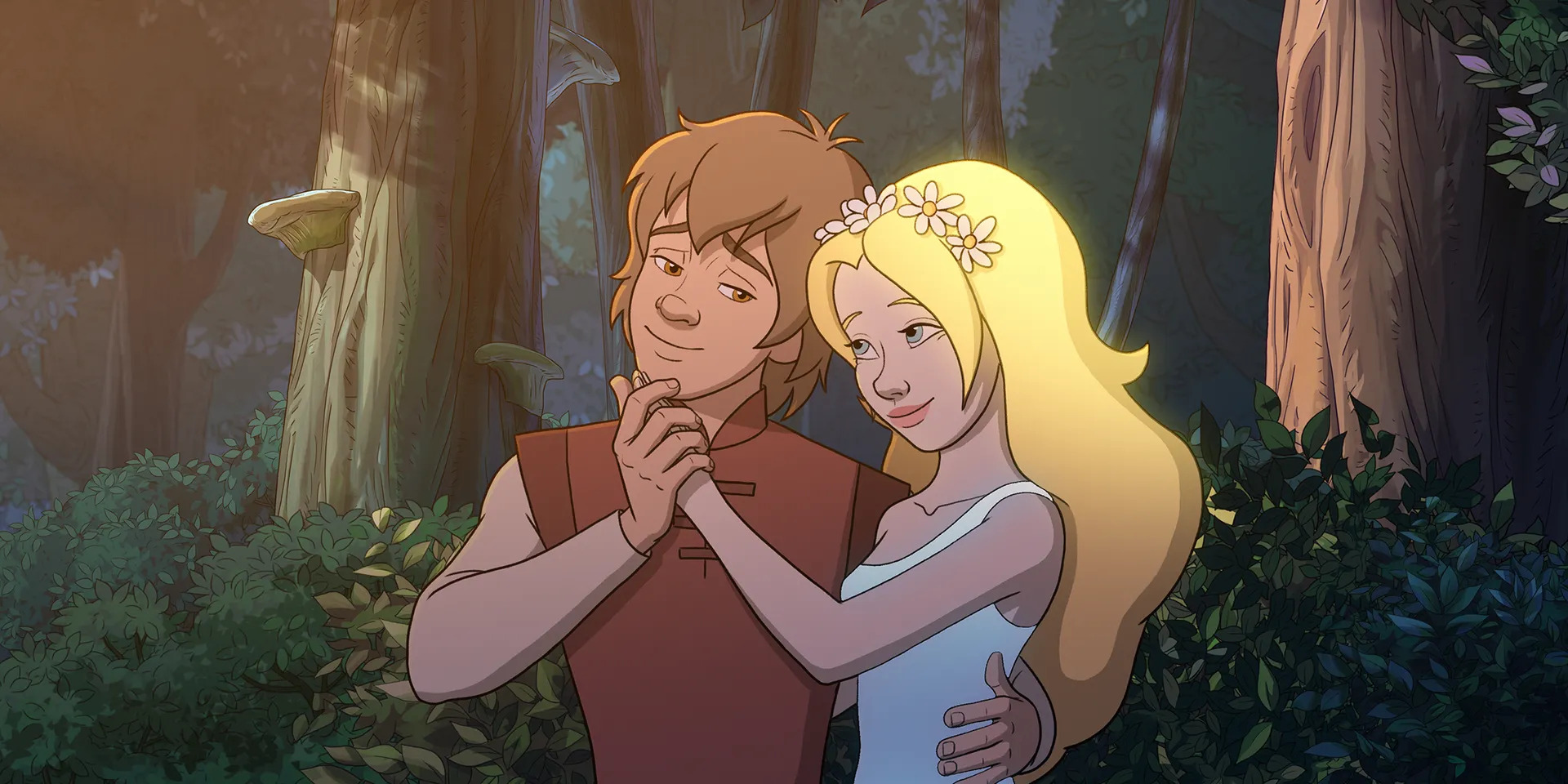
A legendary director’s final wish: The Quest (Csongor & Tünde) on screen at last
A young prince embarks on a magical journey to find happiness, encountering fairies, witches, and mischievous devils in a vibrant, fairy-tale world where love and courage are tested at every turn. Based on Mihály Vörösmarty’s 1830 dramatic poem Csongor and Tünde, the new animated feature titled The Quest (Csongor és Tünde) adapts one of the cornerstones of Hungarian literature for today’s audiences. The film is part of the Official Selection 2025 – Annecy Presents.
Though the surface story is a simple fairy tale of love between a prince and a fairy, threatened by an evil witch, the work is layered with symbols and philosophical reflections on the meaning of life and the pursuit of happiness. Vörösmarty’s Csongor and Tünde is required reading in Hungarian schools to this day, not only because of its poetic language and mythic atmosphere, but because it wrestles with questions that continue to resonate across generations.
The Quest, a hand-drawn 2D animated feature, is the long-awaited realization of a dream cherished by the great Hungarian animator Attila Dargay. A follower of the Macskássy school, Dargay was one of the key figures in Hungarian animation, with beloved feature films that became Hungary’s answer to Walt Disney classics. From the 1970s onward, his feature-length films – aiming to reach children while also holding artistic integrity – defined the golden age of animation at the Pannónia Film Studio.
Among his many plans was a feature adaptation of Csongor and Tünde, a project he began in the early 1970s but was never able to complete. He developed character sketches and a basic narrative arc, but the production stalled. For decades, it seemed this would remain one of Hungarian animation’s most poignant unrealized visions.
Now, 50 years later, Dargay’s dream has been brought to life. Using his original character designs, one of his last students, Csaba Máli, along with co-director Zsolt Pálfi and Cinemon Entertainment’s creative team that includes screenwriter Krisztián Balassa, dialogue writer Dávid Speier, producer-consultant Réka Temple, with the participation of Dargay’s widow and former colleague cinematographer Irén Henrik, completed the film in a spirit true to the master’s legacy. The result is a faithful, lovingly crafted adaptation that pays tribute not only to Vörösmarty but to Dargay – one of the giants of Hungarian animation.
The story retains all the elements of the original: longing lovers who face seemingly insurmountable obstacles, a cunning and malevolent witch, the comically troublesome trio of devil imps, and the memorable wisdom of the three wandering philosophers. There’s also the parallel romance of the more earthly Ilma and Balga, offering a grounded counterpart to the ethereal love of the protagonists.
Dargay’s enduring influence is evident in the film’s tone, humor, visual language, and emotional sincerity. In his lifetime, when asked whether he was satisfied with his career, Dargay replied that he had no regrets – he had worked with wonderful colleagues and on fulfilling projects. His only unfulfilled wish was to see this story brought to life.
This new production finally fills that gap. The film introduces today’s children to Vörösmarty’s universe in a form that’s accessible yet respectful of the original’s depth; the poetic voice and 19th-century elegance remain intact, while the animation brings its magic to life in a new way.
Zsuzsanna Deák

